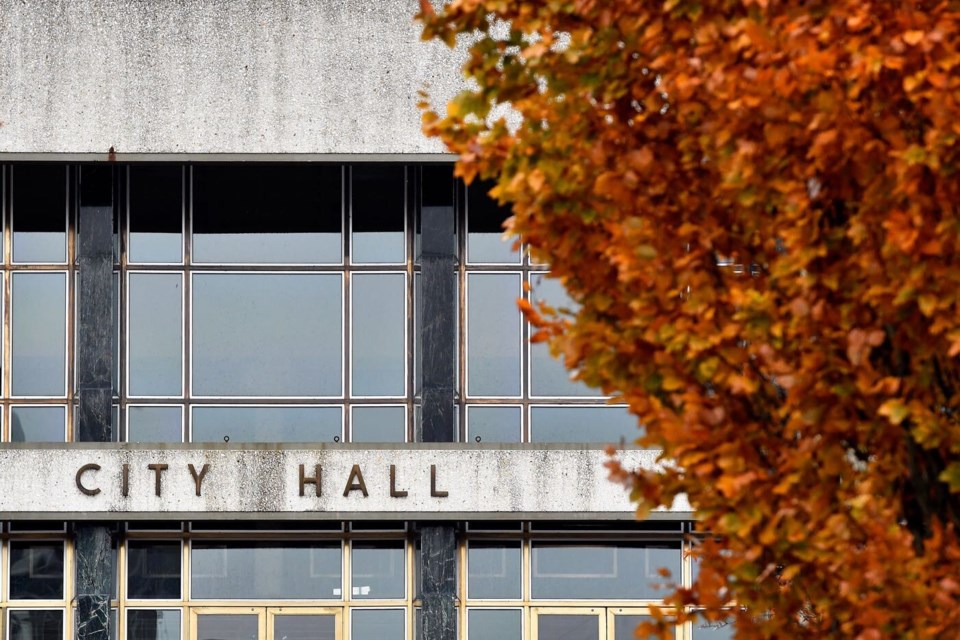Changes to the Residential Tenancy Act mean New Westminster can repeal bylaw provisions intended to protect tenants from “unscrupulous” landlords.
City council has directed staff to begin the process of repealing Part 6 of the city’s business regulations and licensing (rental units) bylaw. In February 2019, the city amended the bylaw to include Part 6, which regulates how landlords and rental building owners can undertake renovations and includes a number of regulations pertaining to restrictions on evictions.
“Due in large part to the success of the City of New Westminster’s bylaw changes, the Province of British Columbia followed our lead to ensure renters across the province are afforded similar protection,” said Mayor Jonathan Cote in a news release. “With the recent changes made to the Residential Tenancy Act, Part 6 of our bylaw is no longer currently required. We appreciate the province’s action towards resolving the incidence of renovictions, and as a city we will continue to work and advocate for better tenant protection.”
According to the city, the action comes in response to changes made to the Residential Tenancy Act that rendered Part 6 of the city’s bylaw inoperable.
“On July 1, 2021, the province introduced new legislation that amended the Residential Tenancy Act for the purpose of addressing renovictions,” said a report to council. “The new legislation requires landlords to apply for dispute resolution to obtain an ‘order to end tenancy’ and an ‘order of possession’ of the units. This process does not require a notice to end tenancy and, since the trigger in the city’s Part 6 provisions is the issuance of the notice to end tenancy, renders the current Part 6 amendments inoperative.”
A report to council states the city isn’t required to repeal the bylaw, despite the fact that it’s inoperative as currently drafted, but noted it’s not good public administration to have bylaws in place that are obsolete and don’t serve a purpose.
“The city’s goal was to address renovictions and protect tenants from unscrupulous landlords,” said the report. “Part 6 of the city’s bylaw achieved that goal. The province has since stepped in to address the issue with legislation that protects tenants with a new stronger process landlords must follow before doing any type of renovation.”
The city took action in response to concerns from tenants who were experiencing renovictions, which is when landlords evict tenants saying they are planning to do a large-scale renovation.
In 2019, the City of New Westminster amended its business regulations and licensing (rental units) bylaw to include Part 6, a section that has specifically aimed to deter renovictions and to provide protection to those tenants who may be displaced by large-scale renovation work.
“The City of New Westminster was the first municipality in British Columbia to tackle the issue of renovictions using municipal regulations and, as such, is considered a leader among municipalities for its bold and direct action to protect tenants,” said a city press release. “The decrease in the number of renovictions since the new regulations have been in place has been dramatic.”
In April 2021, the B.C. Court of Appeal upheld a court challenge to Part 6 and confirmed local governments may use their general powers to pass bylaws in relation to landlord and tenant matters.
“The City of New Westminster has done significant work to address renovictions and to protect tenants from unscrupulous landlords,” said Emilie Adin, the city’s director of climate action, planning and development. “Part 6 of the city’s bylaw, and our resulting victories at the B.C. Supreme Court and the B.C. Court of Appeal, have helped us achieve our goal. We are proud to have paved the way for advancements in regulations and legal precedent.”
On Nov. 1, council gave three readings to amendments related to the bylaws connected to this issue, including repealing Part 6 and amending bylaws allowing the city to force this section of the bylaw.



